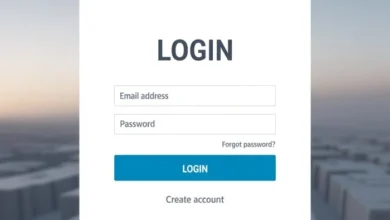Value Education: The Best Choice for Success

Value education enhances personal and academic growth. Embrace value education to build a strong, promising future. Start today and succeed!
What is Value Education?
At first, I didn’t really understand what value education meant. I thought it was just about being “nice” or “good,” but I soon realized it’s much more. Value education shapes our minds and behavior by teaching us key values that guide how we act and interact with others. It’s not just about learning facts; it teaches us to think critically, be kind, and make ethical choices.
In school, teachers taught values like respect, honesty, and responsibility. These weren’t just ideas; they were lessons we used in daily life. For example, during a group project, I made a mistake, but instead of blaming others, I took responsibility and apologized. That lesson in accountability came from value education. It’s not just about following rules; it’s about making values part of who we are.
In today’s world, where we face many challenges, value education helps us grow both as individuals and as members of society. It’s not just about memorizing facts—it’s about becoming better people, and that’s a powerful lesson.
Results of Value Education on Personal Development

I’ve seen how value education has shaped me and others. When we focus on empathy, honesty, and responsibility, we notice real changes in behavior. I’ve seen how learning about responsibility helped students become more confident and accountable, both in school and in their personal lives.
The Relationship Between Value Education and Society
Value education doesn’t just help us grow; it has a ripple effect on the whole community. People who learn strong values not only make better decisions, but they also help create a more compassionate society. I’ve seen this in community projects where people went from being passive to becoming active participants, driven by a sense of responsibility and empathy.
Value Education: Benefits to Students and Society
| Benefits | Students | Society |
| Moral Development | Builds character and ethical choices. | Promotes harmony and social unity. |
| Critical Thinking | Boosts reasoning and judgment. | Encourages informed participation. |
| Emotional Intelligence | Improves self-awareness and empathy. | Reduces social tensions and promotes peace. |
| Responsibility | Teaches accountability for actions. | Encourages civic responsibility. |
| Leadership Skills | Develops leadership qualities. | Contributes to the growth of ethical leaders. |
Looking back, I see how value education shaped me in school. The sense of responsibility and connection to the community that I developed has stayed with me. These values have helped me build stronger relationships based on respect and understanding.
The Role of Teachers in Value Education
Teachers play a huge role in value education. They’re not just teaching us subjects—they’re guiding us in how to make ethical decisions. I remember one class where we discussed a tough moral choice, and the teacher encouraged us to think about what we would do if we were in someone else’s shoes. That moment helped me understand empathy on a deeper level.
Teachers influence our values through their actions, not just their lessons. They show us what it means to be fair, responsible, and kind. This guidance shapes our behavior, both in and out of the classroom, creating a safe space where we can express ourselves and learn from mistakes.
Key Components of Value Education
| Component | Description |
| Moral Values | Teaching honesty, integrity, and fairness. |
| Social Responsibility | Instilling a sense of duty to community and society. |
| Respect for Diversity | Promoting understanding and appreciation of differences. |
| Emotional Awareness | Helping individuals manage their emotions. |
| Civic Engagement | Encouraging participation in community service and activism. |
Looking back, I see how each part of value education shaped me. The moral values taught early on helped guide my choices. I also learned about civic responsibility through community events—a lesson I still carry today. These components form the foundation of value education and have a lasting impact on our lives.
Value Education and Emotional Intelligence

Emotional intelligence (EI) is another key part of value education that impacted me greatly. I used to struggle with stress and emotions, but value education helped me become more self-aware and empathetic. Once, during a tough group project, instead of getting frustrated, I took a step back, understood my team’s feelings, and handled the situation calmly. That’s how value education taught me to manage emotions.
When students understand emotional intelligence, they build better relationships, both personally and professionally. Value education shows us how to manage emotions and empathize with others, leading to better communication and fewer conflicts.
The Impact of Value Education on Career Success
In my career, I’ve seen how the values I learned helped me succeed. In the workplace, responsibility, accountability, and communication are just as important as technical skills. I’ve been praised for being reliable, respectful, and a good team player—all values I learned through value education.
Employers value people with strong work ethics and emotional intelligence. These traits improve performance and teamwork. When value education is part of a person’s development, it leads to better professional relationships and success.
Value Education in the Digital Age
As our world becomes more digital, value education is evolving. Online interactions can sometimes lack empathy, leading to cyberbullying and harassment. This is where value education becomes even more crucial. Teaching students to be responsible online and understand the impact of their actions is essential.
I’ve found that the values I learned in school help me engage more thoughtfully online. Whether it’s pausing before posting or considering the effect of my words, value education has made me more respectful in both face-to-face and online conversations.
Value and Cultural Diversity
In a world that’s more diverse than ever, value education helps us appreciate and respect different cultures. I’ve had the chance to connect with people from various backgrounds, and each time, I’ve applied the lessons of tolerance and inclusivity taught in school. Value education helps us look past surface differences and understand the values and beliefs that shape each culture.
This has allowed me to build stronger relationships and appreciate people on a deeper level. In a multicultural society, these values are key to reducing prejudice and promoting unity. Value education prepares us to interact with others in a way that fosters mutual respect.
The Future of Value Education
Looking ahead, I’m excited to see how value education will evolve. With global challenges like climate change and social inequality, values like empathy, responsibility, and sustainability will be even more important. In the future, value education will not only teach us to be good individuals but also responsible global citizens—people who care about the world and take action to make it better.
I believe the future of education lies in teaching the next generation the right values to address these issues. By including these lessons in schools and communities, we can raise compassionate, responsible individuals who can make a real difference.
Conclusion
It has been a crucial part of my personal growth. It shapes us into responsible, empathetic, and ethical individuals. By learning these values, we not only improve ourselves but also contribute to building better societies. From personal experiences to the impact on the wider community, It remains an essential part of our development.
FAQs.
- What is value education?
Value education teaches important life skills, ethics, and social responsibility to help individuals lead fulfilling lives. It promotes a balanced approach to learning. - How does value education benefit students?
Value education encourages personal growth, critical thinking, and ethical decision-making. It helps students succeed academically and in life. - Why is value education important in today’s world?
In today’s world, value education shapes responsible citizens. It builds respect, empathy, and social awareness for a better society. - How can value education improve my future?
Value education enhances your decision-making and problem-solving skills, preparing you for career and life challenges and ensuring long-term success. - Can value education be incorporated into everyday life?
Yes, It can be integrated into daily experiences. Practicing respect, honesty, and empathy in your interactions promotes its principles. - What are some examples of value education?
Examples include lessons on teamwork, honesty, respect, responsibility, and community service, helping individuals develop strong moral values. - Is value education only for students?
No, value education benefits people of all ages. It encourages lifelong learning and personal development for a better society. - How does value education affect society?
Value education fosters a society of responsible, ethical individuals, contributing to social harmony, equality, and sustainability. - Where can I get value education resources?
Schools, online platforms, and community programs offer various resources on it. Many organizations also provide courses and materials.



